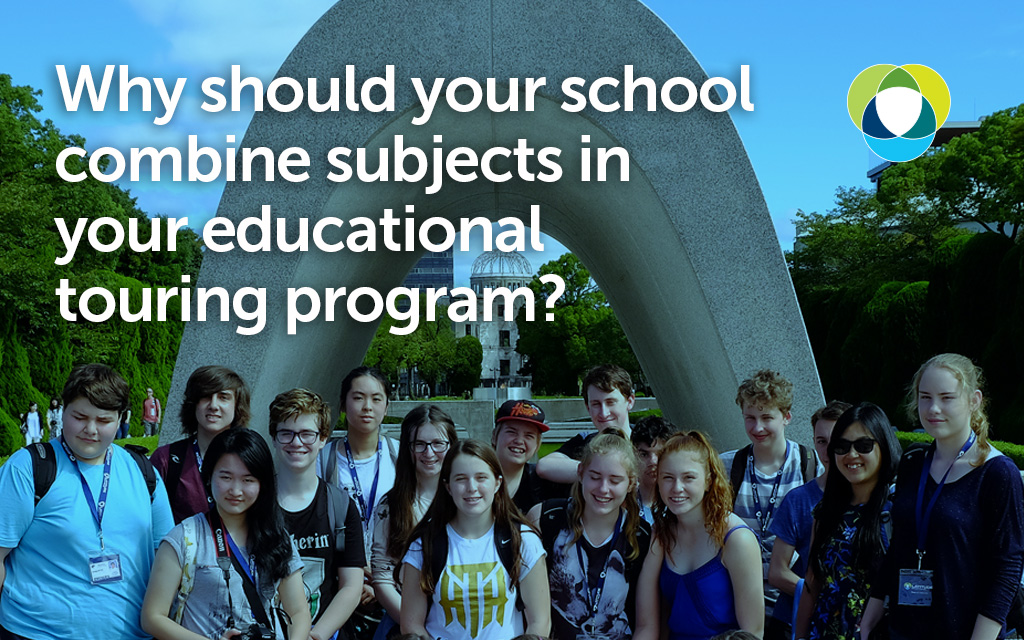School touring programs of the past were typically based on an ad hoc approach. That is, individual teachers decided to take their students on an educational tour to complement classroom learning in a particular subject. Perhaps they arranged the travel themselves; or perhaps they approached a provider to help them plan and manage things.
However it was done, ad hoc educational travel was really only fulfilling an immediate need for that particular teacher and group of students. Trips were rarely (if ever) arranged with consideration for the broader school community, let alone the school’s strategic vision, values and higher purpose.
And just to be clear, we don’t suggest teachers should be focused on organising educational tours in a strategic way! Educational travel co-ordination isn’t the core function of most teachers, and they may not spend much time thinking about how they can get the very best from a school trip in a way that benefits the broader school community.
Because let’s face it, time is not something most teachers have a lot of right now.
This is why we are so enthusiastic about combining subjects on educational tours, and believe every school should be doing this as often as possible when travelling domestically or abroad.
What do we mean by combining subjects on educational tours?
As the name suggests – this means combining subjects into a single trip itinerary. While also including many activities for each subject group on their own, you can also combine activities where appropriate, ensuring no subject is diluted.
What are some of the benefits of this approach to educational travel?
There are numerous benefits, but the two main ones are:
- By incorporating more subjects, you are reaching more students. We believe all students deserve the opportunity to participate in educational travel opportunities, not just those who are studying particular subjects. This helps you to achieve that aim.
- You will ensure the efficiency and economic viability of your school tours. This is because of the simple fact that the more people who travel in a group, the better deals and value you will get.
Are there any negatives to combining subjects on educational travel itineraries?
Not if you work with the right provider, who is also focused on the educational merit for each group on the tour – as well as focusing on experiential learning activities and outcomes, rather than sightseeing trips.
We do know of educational touring providers who claim to offer itineraries with combined subjects, but a deeper look at their itineraries reveals the merit and substance for some subject areas is lacking.
What are some examples of combining subjects on school trips?
There are many, but one of the most complex we have managed combined Italian Language, French Language, Renaissance History, WWI and WWII Histories, Fascism and Art on a single itinerary. It was highly complex to plan and manage, but we found a way to place enough emphasis on each subject group, as well as combining subject groups in relevant activities wherever possible.
We love what we do, and these types of complex itineraries provide the most refreshing and satisfying challenge, when done properly!
What about the Cross-Curriculum Priorities?
We believe that the Cross-Curriculum Priorities, as identified in the Australian Curriculum, should be embedded across every school touring program, wherever possible and appropriate. You shouldn’t have to ask your touring provider for this, it should be offered to you.
We know from experience that there are countless opportunities on every tour to add depth and richness to student learning around the following areas:
- Asia and Australia’s Engagement with Asia
- Sustainability
- Aboriginal and Torres Strait Islander Histories and Culture
The same is true of the General Capabilities, which we include in most of our tours as a matter of course.
How can we help?
Latitude Group Travel is Australia’s leading provider of school trips and educational tours for late primary and secondary school students. We’re committed to helping teachers and their students bring their classroom learnings to life by creating memorable and unique experiences. Our itineraries allow your group to take in iconic sights combined with as many classes, workshops, themed guided tours or subject related activities as you wish.
To find out more:
Tour Brochures – Request a copy of any of tour brochures by filling out the form – we’ll send it to you via email
Get in touch to find out how to claim the discount for your school.


